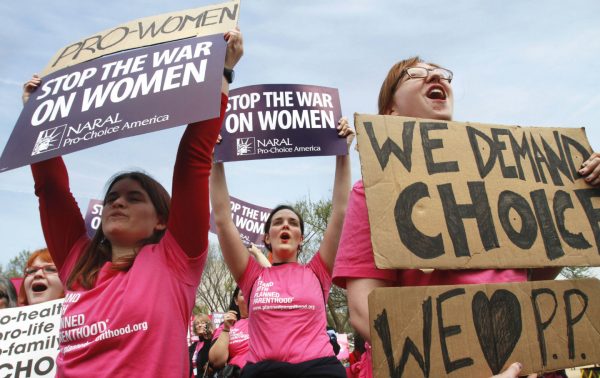Gender equality is not only a fundamental right but a growing concern in today’s world – it is one of the United Nations’ Sustainable Development Goals amid a global promotion of women’s rights. The United Nations (UN) itself determines that ‘’Providing women and girls with equal access to education, health care, decent work, and representation in political and economic decision-making processes will fuel sustainable economies and benefit societies and humanity at large’’.(1)
A key element in equal access to opportunities regardless of gender, is the right to paid maternity leave: paid maternal leave policies boost the end of the longstanding gendered dichotomy between public and private life in enabling a reconciliation of work and family life. Furthermore, 79 countries(2) assure both maternity and paternity, aiming towards true gender equality. In this short piece I will look into parental leave as a driver of female empowerment, taking the case of the United States and of Portugal as two different actors in this realm.
In 1966, the UN adopted the International Covenant on Economic, Social and Cultural Rights (ICESCR), a multilateral treaty committing states to safeguards such as the right to health and the right to education. This legally-binding treaty has 165 signatory states(3) and has come to constitute a fundamental step in growing out of the gendered dichotomy between the public and private sphere: the private sphere of household duties and family is construed as a predominantly female responsibility, whereas men belong in the public realm of law, economics, politics and intellectual life. Said dichotomy is the manifestation of unequal cultural and social patterning of male and female roles, and has only recently started to be countered by protective legislation. Paid maternity leave policies as insurers of gender equality in the workplace are a prime example.
The ICESCR, besides safeguarding the right to equal pay in Article 7(4), notably determines in Article 10 that ‘’Special protection should be accorded to mothers during a reasonable period before and after childbirth. During such period working mothers should be accorded paid leave or leave with adequate social security benefits’’(5). This positive reinforcement promotes shared earning and shared parenting among couples, and most importantly encourages a reconciliation of work life and familial life responsibilities, therein fading the aforementioned traditional dichotomy and triggering a more balanced and gender-conscious societal living.
Portugal acceded to the treaty on 31 July 1978, and presently assures the right to paid maternity and paternity leave in the Labor Code, with a priori avowal that ‘’Maternity and paternity are eminent social values (…) Workers have the right to the protection of society and the State in carrying out their irreplaceable action in relation to the exercise of parenthood’’(6). Protection is assured in cases such as risk pregnancy, adoption, parenthood, breastfeeding, urgent child assistance and parental leave. While both parents are also entitled to separate leave days (30 days prior to birth for the mother and 15 days after the birth for the father), Article 40 provides that ‘’The working mother and father are entitled, on the basis of the birth of the child, to initial parental leave of 120 or 150 consecutive days, the enjoyment of which may be shared after childbirth’’(7) . Moreover, the wider European Union (EU) framework in which member-state Portugal is inserted similarly assures such social protections and benefits to its citizens: Article 33 of the Charter of Fundamental Rights of the EU states that ‘’To reconcile family and professional life, everyone shall have the right to protection from dismissal for a reason connected with maternity and the right to paid maternity leave and to parental leave following the birth or adoption of a child’’(8).
Both national and regional structures ensure workers are not discriminated, not obstructed in their pursuance of a family unit, nor hindered in their career prospects. Nevertheless, there is room for further protection in Portugal: a bigger bet could be given to schedule flexibility upon return to work, for both parents, as well as an overall higher consideration of paternity leave and benefits.
In light of this context of cultural gender-discriminatory notions and influential legal safeguards, it is extremely lamentable that the United States fails to assure its citizens paid maternity or paternity leave. In fact the USA has not acceded to the ICESCR (only joined by Comoros, Cuba, Myanmar and Palau as signatory-state only), and is solely joined by Papua New Guinea in not providing statutory cash benefits during maternity leave, according to the International Labor Organization’s 2014 Maternity and paternity at work: Law and practice across the world(9).
Besides the neglect of social rights to working mothers and fathers, this lack of state protection, most importantly, impedes further progress and derails attempts to encourage women to more effortlessly reconcile work and family life.
Change drives change, and positive reinforcements lead the way for positive action that develop into positive growth, which ultimately matures towards a more successful – in this case gender equal – fulfillment of human rights and standards of living. A single policy change should not be underestimated, and the USA needs to act as the beacon of hope it claims to be and finally guarantee maternal and paternal social rights.
1)United Nations, ‘’Sustainable Development Goals – Goal 5‘’, http://www.un.org/sustainabledevelopment/gender-equality/
2)Jack Linshi, ‘’See How Much Paternity Leave New Dads get by Country’’ (Time), 10/June/2015, http://time.com/3916511/parental-leave-map/
3)United Nations Treaty Collection – International Covenant on Economic, Social and Cultural Rights [available online: https://treaties.un.org/Pages/ViewDetails.aspx?src=IND&mtdsg_no=IV-3&chapter=4&clang=_en#19 ]
4)’Article 7: The States Parties to the present Covenant recognize the right of everyone to the enjoyment of just and favorable conditions of work which ensure, in particular: (a) Remuneration which provides all workers, as a minimum, with:
(i) Fair wages and equal remuneration for work of equal value without distinction of any kind, in particular women being guaranteed conditions of work not inferior to those enjoyed by men, with equal pay for equal work’’
5)United Nations, International Covenant on Economic, Social and Cultural Rights, 1966, Article 10-2
6)Portuguese Republic, Código do Trabalho 2009, Article 33
7)Ibid Article 40
8)Official Journal of the European Union, Charter of Fundamental Rights of the European Union – (2012/C 326/02) (2012), Article 33-2
9)International Labor Organization, Maternity and paternity at work: Law and practice across the world (2004), pg.2 [available online: http://www.ilo.org/wcmsp5/groups/public/—dgreports/—dcomm/documents/publication/wcms_242617.pdf ]










Mais crónicas
EU PROCRASTINO, E TU?
As mulheres merecem um amor feliz
O MEU MUNDO INVERTIDO